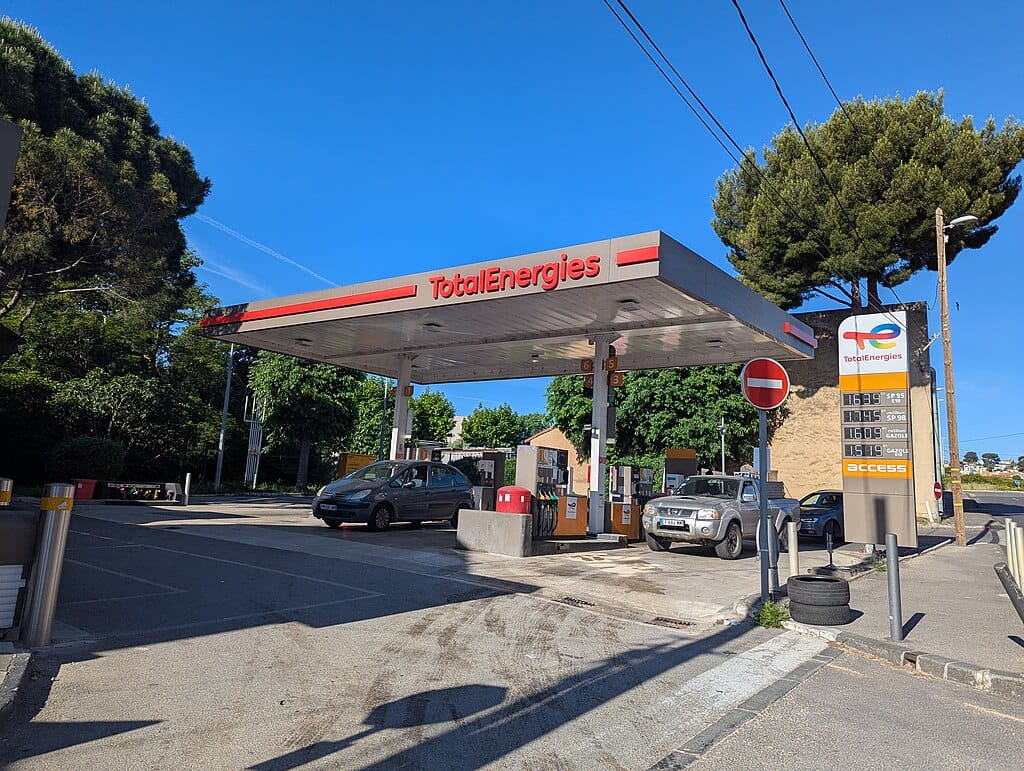TotalEnergies Misled Consumers, Court Rules In Historic Greenwashing Judgment

A French court has handed down a landmark ruling finding that the French oil major TotalEnergies misled consumers regarding its climate commitments. The company’s public-facing statements claiming to be a “major player in the energy transition” and to be striving to achieve carbon neutrality by 2050 created a misleading green impression that breached European consumer protection law, the court determined, since such statements appeared to conflict with the company’s oil and gas expansion plans that are not aligned with climate science.
The “world-first” ruling marks the first time that a court has held an oil and gas company liable for misleading consumers about its role in the climate crisis by portraying a green image – conduct known as greenwashing, or in the climate context, “climate-washing.” According to the UK-based environmental law organization ClientEarth, which supported the NGO plaintiffs in this case, it is “the first greenwashing judgment ever issued against the oil industry’s net zero narrative.”
The Paris Judicial Court’s Oct. 23 ruling comes in a lawsuit brought in 2022 by French NGOs Greenpeace France, Les Amis de la Terre (Friends of the Earth) France, and Notre Affaire à Tous against France’s largest oil and gas company, which rebranded itself in 2021 as TotalEnergies (its previous name was Total). A major communications and advertising campaign accompanied the rebrand, in which the company highlighted its ambition to reach net zero emissions – in other words, achieve carbon neutrality – and to be a leader in the energy transition, placing sustainable development and climate “at the heart” of its strategy. The NGOs argued these claims were misleading and unlawful, since TotalEnergies is one of the biggest climate polluters in the world and has plans to increase its oil and gas production in the coming years.
In making its determination, the court referred to scientific and expert reports released in recent years warning that continued fossil fuel expansion, such as investments in new oil and gas fields, is inconsistent with pathways for limiting warming to 1.5°C – the objective established in the Paris Agreement – and for reaching net zero by midcentury. These expert warnings, from bodies like the Intergovernmental Panel on Climate Change, the International Energy Agency, and the UN Environment Program, imply that fossil fuel use must be substantially reduced. A 2022 report by a High-Level Expert Group convened by the UN Secretary-General even states: "Net zero is entirely incompatible with continued investment in fossil fuels.”
TotalEnergies disputed that its strategy was incompatible with the science and pointed to its own scenario for realizing carbon neutrality, but the court noted this scenario was not mentioned in the company’s public-facing claims that were at issue in the case. Therefore, given the company’s “continuation of its investments in oil and gas, contrary to the recommendations of scientific studies aligned with the Paris Agreement,” the court found that TotalEnergies “deliberately made an environmental claim likely to mislead consumers.”
As a remedy, the court ordered TotalEnergies to remove the misleading statements from its website and to prominently display the judgment on its website for a period of 180 days, with fines of €10,000 a day if it fails to do so.
The court dismissed the NGOs’ other claims pertaining to the company’s promotion of fossil gas and biofuels as climate solutions, finding those communications were not directly related to the sales of products and were thus outside the scope of the consumer protection law.
In a statement responding to the court’s judgment, TotalEnergies said it “acknowledges the decision” and announced that it would not appeal the ruling. The company said it decided not to appeal because the ruling was actually quite narrow, contrary to what “certain media reported.”
“No ‘advertising’ by TotalEnergies’ affiliates in France was condemned by the Court,” the company asserted. It said it would remove the “three paragraphs” concerning its carbon neutrality ambition and replace it with a “factual description of TotalEnergies’ achievements to date in the implementation of its multi-energy strategy, to dispel any doubts among its customers.”
The NGOs that brought the case said they welcomed the court’s ruling. They said it “marks a turning point for consumer protection, climate preservation, and the fight against greenwashing practices.”
Johnny White, a lawyer with ClientEarth, told Climate in the Courts that the decision sets an important legal precedent in the EU, not only for courts but also for regulatory authorities.
“We’ve seen already that a similar case against the airline industry was followed by coordinated EU-wide regulatory enforcement against 20 airlines,” he noted. “One thing that I might expect to see would be those regulators now taking this as a precedent for EU-wide regulatory enforcement against the oil and gas energy sector in its consumer claims across Europe.”
Justine Ripoll, campaigns manager at Notre Affaire à Tous, said the ruling is a significant development in terms of corporate climate accountability.
“By recognizing that Total’s communications are misleading consumers, the French justice system is finally tackling the impunity of fossil fuel greenwashing that Total has enjoyed until now,” she said. “It sends a clear message: climate disinformation is not an acceptable business strategy. Citizens have the right to honest information, and fossil fuel companies must be held accountable for the reality of their activities.”


